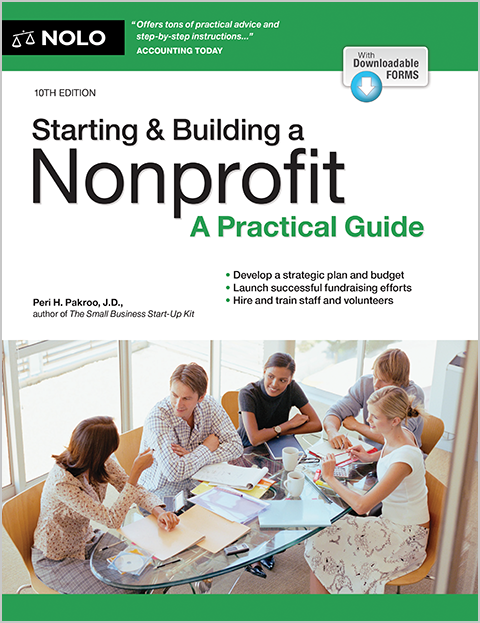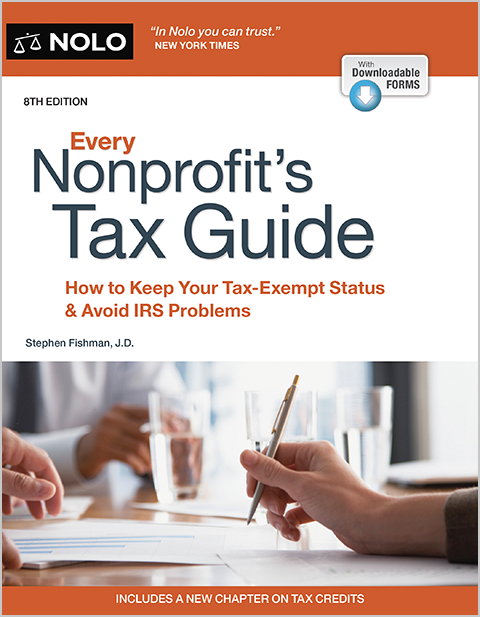A nonprofit's directors are usually -- but not always -- protected from personal liability for lawsuits against the nonprofit.
Most people know that incorporation protects business owners from personal liability for corporate obligations (known as limited liability protection). Anyone who wants to sue over a business-related debt or injury must go after the corporate entity, not the personal assets (cars, homes, or bank accounts) of its owners. It's an important protection, given the range of possible lawsuits against businesses—perhaps by a disgruntled employee claiming wrongful termination, an unhappy vendor claiming breach of a contract, or a visitor who was injured on the front walk.
Do Nonprofit Corporations Provide Limited Liability?
Nonprofits don't have shareholders, but they do have other individuals who could be concerned about limited liability protection, such as staff, board members, and officers. Fear of personal liability can stop people from joining boards of directors at all—although the number who have actually been sued is quite small.
The good news is that, with certain exceptions, once your organization is incorporated, its directors or trustees, officers, employees, and volunteers usually won't be on the hook personally for the nonprofit's debts or liabilities. That includes unpaid organizational debts and unsatisfied court judgments against the nonprofit.
Let's take a closer look at the extent of nonprofit board members' protection from personal liability.
How Personal Liability Protection for Nonprofit Board Members Works
Consider, for example, a nonprofit symphony that's sued by an audience member who, during intermission, falls because of a poorly maintained staircase railing.
If the court finds in favor of the audience member, it could issue a judgment against the nonprofit for a large amount—perhaps greater than the nonprofit's insurance coverage. The amount of the judgment becomes a debt of the nonprofit corporation. But thanks to its corporate status, the nonprofit's directors, officers, and members aren't personally responsible for paying that debt.
By contrast, if an unincorporated association of musicians owned the premises, the principals of the unincorporated group could be required to pay the judgment amount out of their own pockets—thus putting their personal assets at risk. (Some states' laws, however, offer protection to people affiliated with unincorporated associations.)
Exceptions to the Limited Liability Rule for Nonprofits
In a few situations, people involved with a nonprofit corporation can be held personally liable for its debts. Directors or officers of nonprofit corporations can be held personally liable if they:
- personally and directly injure someone
- personally guarantee a bank loan or a business debt on which the corporation defaults
- fail to ensure that the nonprofit deposits taxes (such as payroll and property taxes) or files necessary tax returns
- do something intentionally fraudulent, illegal, or clearly wrong-headed that causes harm, or
- commingle nonprofit and personal funds.
A Special Word of Caution on Unpaid Payroll Taxes
A nonprofit's unpaid payroll taxes can raise a big risk in terms of board members' liability. A failing nonprofit might find itself unable to pay taxes, and then close its doors. After that, the IRS could turn to the board of directors for payment, and the board members might discover too late that their insurance doesn't cover unpaid taxes.
When a nonprofit fails to pay its payroll taxes, any "responsible person" can be held personally liable. In other words, responsible people are on the hook to pay the back taxes and penalties out of their own pockets. A responsible person may include not only a nonprofit's accountant or bookkeeper, but also anyone who exercises significant control over the nonprofit's finances. People in this situation can include not only a nonprofit's treasurer, president, executive director, CEO, and other officers, but its board members as well.
Even someone who wasn't directly involved in paying payroll taxes can be found liable. In the case of Verret v. U.S., the chairman of the board of directors of a nonprofit was held personally liable for nonpayment of payroll taxes, even though the organization's in-house director and accountant were the ones who were charged by the board with the duty of seeing that the taxes were paid.
However, there's a limited exception to the rule that responsible people can be liable for a nonprofit's unpaid payroll taxes. Liability won't be imposed on a volunteer director who:
- serves only in an honorary capacity
- doesn't participate in the day-to-day or financial operations of the nonprofit, and
- doesn't have actual knowledge of the failure to pay payroll taxes.
This exception can apply only where volunteer a board member has absolutely no personal involvement with a nonprofit's operations.
Using Insurance to Cover Nonprofit Liabilities
Reasonably priced insurance is available to protect a nonprofit and its volunteer directors and officers from some kinds of liability—it's called "D&O insurance." D&O policies cover claims arising from what are known as errors and omissions (E&O) by directors, officers, and other covered individuals.
Most D&O claims are employment-related, such as accusations of discrimination or wrongful termination, so be sure that your policy includes employment practices liability (EPL) coverage. Be sure to also have separate general liability insurance for other losses, such as from personal injury claims or property damage.
Read more about the types of insurance nonprofits should buy.
Additional Resource for Nonprofits
Director liability can be complicated. If you're unsure of how to best protect your directors from personal liability, or if you're wondering whether your directors might be liable for a particular obligation of your nonprofit, consult a knowledgeable nonprofit attorney.
Looking for a map that will put your nonprofit on the road to success? Get Starting & Building a Nonprofit: A Practical Guide, by Peri H. Pakroo, J.D. (Nolo).



